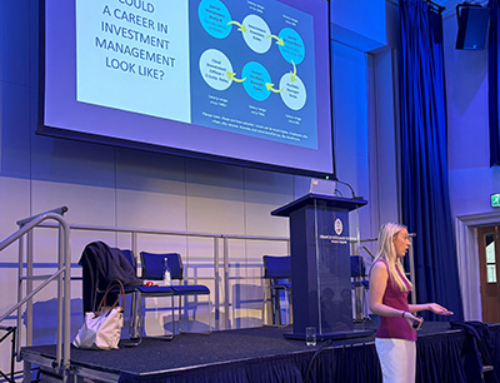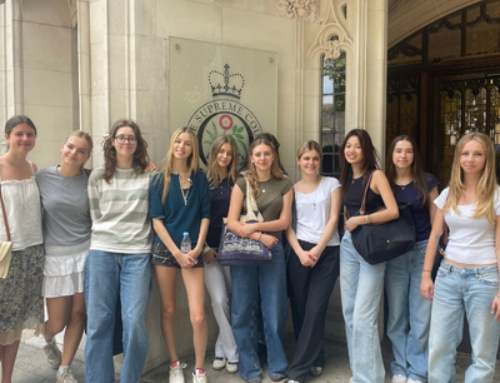Happiness was in action last night for the parents, staff and students of Francis Holland School, Sloane Square. Dr Mark Williamson, Director of the social change organisation Action for Happiness delivered a lively lecture about where we are as a society in terms of well-being, and what further steps could make all the difference.
As a school, we are committed to the development of emotional strength and resilience. It was clear yesterday evening that we were all parents, staff and girls really excited to learn the latest research and about ways to build action for happiness into the school day.
Drawing on recent robust research evidence from the field of Positive Psychology, Action for Happiness has distilled ten key actions that can lead to happier living. Dr Williamson gave us the opportunity to experience the impact of some of these key actions. Firstly, we had a short period of mindfulness to help see the difference it can make when we take control of our attention. We then all stood up and did a one minute pencil portrait of our neighbour. The catch was that we couldnt look at him or her while we were drawing. This was such a simple thing to do, but it generated a lot of laughter and, just in a brief moment, gave us the opportunity to connect with each another. Alex Horowitz (Deputy Head Girl) volunteered to take part in a demonstration with Dr Williamson, to show how small differences in how we converse and respond to each other can enhance both our relationships and our self-esteem. Finally, we looked at where we find meaning in our lives and considered what advice our future selves, towards the end of our life, might give us. Are we really prioritising the things that matter?
A recent study published by Professor Layard, also a director of the Action for Happiness movement, showed that the biggest predictor of well-being in life is emotional health when we are young. This is twice as important as social relationships, and three times more relevant than academic results! Emotional strength is key to future happiness and well-being. The message was simple but clear. There are ways we can improve our mental well-being and we have a responsibility to do this, both for ourselves and for our children.
Dr Williamson really walks the talk. He left his high-flying career in the corporate world to make a difference. He and his organisation have indeed already made a difference, ensuring that happiness and well-being are taken seriously by politicians, in organisations and in schools.
As Mrs Elphinstone said at the end of the talk, we had not only all enjoyed the evening but we were quite simply not leaving the same as we came in.
Gillian Hammond
Head of Psychology
Teacher in charge of Mindfulness














